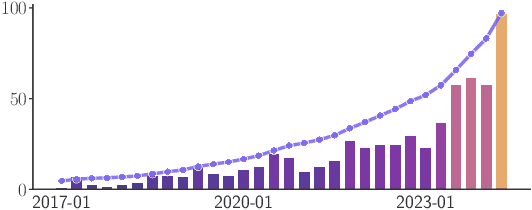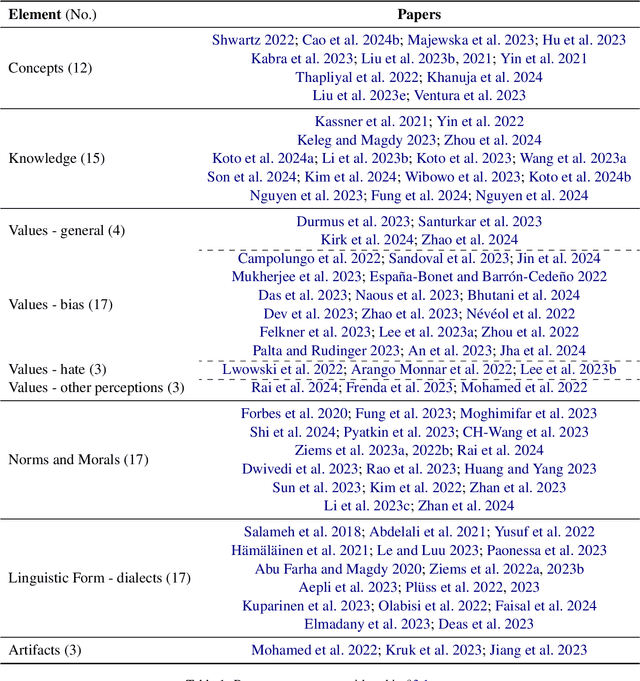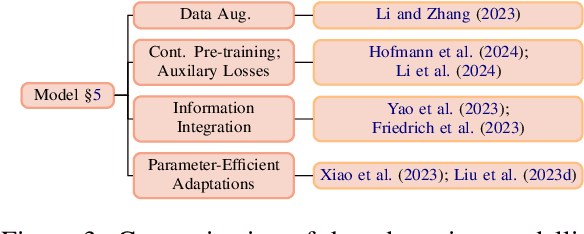Chen Cecilia Liu
LLMs as Cultural Archives: Cultural Commonsense Knowledge Graph Extraction
Jan 25, 2026Abstract:Large language models (LLMs) encode rich cultural knowledge learned from diverse web-scale data, offering an unprecedented opportunity to model cultural commonsense at scale. Yet this knowledge remains mostly implicit and unstructured, limiting its interpretability and use. We present an iterative, prompt-based framework for constructing a Cultural Commonsense Knowledge Graph (CCKG) that treats LLMs as cultural archives, systematically eliciting culture-specific entities, relations, and practices and composing them into multi-step inferential chains across languages. We evaluate CCKG on five countries with human judgments of cultural relevance, correctness, and path coherence. We find that the cultural knowledge graphs are better realized in English, even when the target culture is non-English (e.g., Chinese, Indonesian, Arabic), indicating uneven cultural encoding in current LLMs. Augmenting smaller LLMs with CCKG improves performance on cultural reasoning and story generation, with the largest gains from English chains. Our results show both the promise and limits of LLMs as cultural technologies and that chain-structured cultural knowledge is a practical substrate for culturally grounded NLP.
Tailored Emotional LLM-Supporter: Enhancing Cultural Sensitivity
Aug 11, 2025Abstract:Large language models (LLMs) show promise in offering emotional support and generating empathetic responses for individuals in distress, but their ability to deliver culturally sensitive support remains underexplored due to lack of resources. In this work, we introduce CultureCare, the first dataset designed for this task, spanning four cultures and including 1729 distress messages, 1523 cultural signals, and 1041 support strategies with fine-grained emotional and cultural annotations. Leveraging CultureCare, we (i) develop and test four adaptation strategies for guiding three state-of-the-art LLMs toward culturally sensitive responses; (ii) conduct comprehensive evaluations using LLM judges, in-culture human annotators, and clinical psychologists; (iii) show that adapted LLMs outperform anonymous online peer responses, and that simple cultural role-play is insufficient for cultural sensitivity; and (iv) explore the application of LLMs in clinical training, where experts highlight their potential in fostering cultural competence in future therapists.
From Surveys to Narratives: Rethinking Cultural Value Adaptation in LLMs
May 22, 2025Abstract:Adapting cultural values in Large Language Models (LLMs) presents significant challenges, particularly due to biases and limited training data. Prior work primarily aligns LLMs with different cultural values using World Values Survey (WVS) data. However, it remains unclear whether this approach effectively captures cultural nuances or produces distinct cultural representations for various downstream tasks. In this paper, we systematically investigate WVS-based training for cultural value adaptation and find that relying solely on survey data can homogenize cultural norms and interfere with factual knowledge. To investigate these issues, we augment WVS with encyclopedic and scenario-based cultural narratives from Wikipedia and NormAd. While these narratives may have variable effects on downstream tasks, they consistently improve cultural distinctiveness than survey data alone. Our work highlights the inherent complexity of aligning cultural values with the goal of guiding task-specific behavior.
Culturally Aware and Adapted NLP: A Taxonomy and a Survey of the State of the Art
Jun 06, 2024



Abstract:The surge of interest in culturally aware and adapted Natural Language Processing (NLP) has inspired much recent research. However, the lack of common understanding of the concept of "culture" has made it difficult to evaluate progress in this emerging area. Drawing on prior research in NLP and related fields, we propose an extensive taxonomy of elements of culture that can provide a systematic framework for analyzing and understanding research progress. Using the taxonomy, we survey existing resources and models for culturally aware and adapted NLP, providing an overview of the state of the art and the research gaps that still need to be filled.
Early Period of Training Impacts Out-of-Distribution Generalization
Mar 22, 2024Abstract:Prior research has found that differences in the early period of neural network training significantly impact the performance of in-distribution (ID) tasks. However, neural networks are often sensitive to out-of-distribution (OOD) data, making them less reliable in downstream applications. Yet, the impact of the early training period on OOD generalization remains understudied due to its complexity and lack of effective analytical methodologies. In this work, we investigate the relationship between learning dynamics and OOD generalization during the early period of neural network training. We utilize the trace of Fisher Information and sharpness, with a focus on gradual unfreezing (i.e. progressively unfreezing parameters during training) as the methodology for investigation. Through a series of empirical experiments, we show that 1) selecting the number of trainable parameters at different times during training, i.e. realized by gradual unfreezing -- has a minuscule impact on ID results, but greatly affects the generalization to OOD data; 2) the absolute values of sharpness and trace of Fisher Information at the initial period of training are not indicative for OOD generalization, but the relative values could be; 3) the trace of Fisher Information and sharpness may be used as indicators for the removal of interventions during early period of training for better OOD generalization.
Are Multilingual LLMs Culturally-Diverse Reasoners? An Investigation into Multicultural Proverbs and Sayings
Sep 15, 2023Abstract:Large language models (LLMs) are highly adept at question answering and reasoning tasks, but when reasoning in situational context, human expectations vary depending on the relevant cultural common ground. As human languages are associated with diverse cultures, LLMs should also be culturally-diverse reasoners. In this paper, we study the ability of a wide range of state-of-the-art multilingual LLMs (mLLMs) to reason with proverbs and sayings in a conversational context. Our experiments reveal that: (1) mLLMs 'knows' limited proverbs and memorizing proverbs does not mean understanding them within a conversational context; (2) mLLMs struggle to reason with figurative proverbs and sayings, and when asked to select the wrong answer (instead of asking it to select the correct answer); and (3) there is a "culture gap" in mLLMs when reasoning about proverbs and sayings translated from other languages. We construct and release our evaluation dataset MAPS (MulticultrAl Proverbs and Sayings) for proverb understanding with conversational context for six different languages.
Improving Generalization of Adapter-Based Cross-lingual Transfer with Scheduled Unfreezing
Jan 13, 2023Abstract:Standard fine-tuning of language models typically performs well on in-distribution data, but suffers with generalization to distribution shifts. In this work, we aim to improve generalization of adapter-based cross-lingual task transfer where such cross-language distribution shifts are imminent. We investigate scheduled unfreezing algorithms -- originally proposed to mitigate catastrophic forgetting in transfer learning -- for fine-tuning task adapters in cross-lingual transfer. Our experiments show that scheduled unfreezing methods close the gap to full fine-tuning and achieve state-of-the-art transfer performance, suggesting that these methods can go beyond just mitigating catastrophic forgetting. Next, aiming to delve deeper into those empirical findings, we investigate the learning dynamics of scheduled unfreezing using Fisher Information. Our in-depth experiments reveal that scheduled unfreezing induces different learning dynamics compared to standard fine-tuning, and provide evidence that the dynamics of Fisher Information during training correlate with cross-lingual generalization performance. We additionally propose a general scheduled unfreezing algorithm that achieves an average of 2 points improvement over four datasets compared to standard fine-tuning and provides strong empirical evidence for a theory-based justification of the heuristic unfreezing schedule (i.e., the heuristic schedule is implicitly maximizing Fisher Information). Our code will be publicly available.
 Add to Chrome
Add to Chrome Add to Firefox
Add to Firefox Add to Edge
Add to Edge